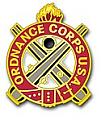Hi Carl,

Originally Posted by
carl

I contend the American people DO have the will to contend with whatever sacrifices are needed. The American elites, politcal, academic and media DO NOT.
I think that you have raised a very important point, and one that goes to the heart of the overall question. Let me recast this in a couple of questions:- Who are the "elites" and why are they "elite"?
- What is "public service" and who defines it?
- What is the American concept of "personal honour" and how does this relate to the concept of "sacrifice"?
Let's start with the first one. One of the enduring effects of the English Civil War was to break the Aristocracy and Gentry's belief in the Great Chain of Being (GCB; i.e. that there was a divinely inspired ordering in the world and society - a basic position of RC theology at the time). After all, regicide for cause certainly does force a society to reconsider its ordering, and the "new" ordering under Cromwell was much more "Protestant".
That said, in a rather round about way, the meme that replaced the GCB was that elites were "elite" because they were "better" but, unlike the GCB, they had to continually show it (this is tied in with the concept of "dis-covering" salvation by evidence of God's grace - see Weber's The Protestant Ethic and the Spirit of Capitalism for a really detailed analysis). This somewhat curious blending of "blood right" (Weber's Herrenschaft for those who are interested) with a de facto requirement for merit led to several things, including an increased ability for class mobility through superior merit (e.g. the 1792 expansion in the House of Lords).
For the Colonial elites in North America, you had varying expressions of this, but in most cases it came down to a situation of if you wanted to claim elite status, you had to act as if you were an "elite". By this, I don't mean the social manners, I mean the clear and visible signs of being "superior" in some field of endevour. After your Revolution, the lines of social legitimacy changed: in Canada, we retained the Crown as the ultimate arbiter of elite status whereas in the US that shifted to abstract "social actors" (e.g. the Constitution, economic success, etc.). This shift was picked up by de Tocqueville in Democracy in America when he made the following observations:
While the workman concentrates his faculties more and more upon the study of a single detail, the master surveys an extensive whole, and the mind of the latter is enlarged in proportion as that of the former is narrowed. In a short time the one will require nothing but physical strength without intelligence; the other stands in need of science, and almost of genius, to ensure success. This man resembles more and more the administrator of a vast empire; that man, a brute.
The master and the workman have then here no similarity, and their differences increase every day. They are connected only like the two rings at the extremities of a long chain. Each of them fills the station which is made for him, and which he does not leave; the one is continually, closely, and necessarily dependent upon the other and seems as much born to obey as that other is to command. What is this but aristocracy?
But in a democracy where the poor may become rich and the rich may become poor, there is little social and cultural pressure on them since they are not a class in and of themselves. Again, from de Tocqueville,The territorial aristocracy of former ages was either bound by law, or thought itself bound by usage, to come to the relief of its serving-men and to relieve their distress. But the manufacturing aristocracy of our age first impoverishes and debases the men who serve it and then abandons them to be supported by the charity of the public. This is a natural consequence of what has been said before. Between the workman and the master there are frequent relations, but no real association.
While there have been periods when local manufacturing aristocracies in the US have created certain "usages" (e.g. the public works status markers of libraries, schools, etc pushed by the Carnagies, et alii), I suspect that Lou Dobbs would agree with most of what de Tocqueville said  .
.
So, back to that question: who are the elites and why are they "elite"? Also, I would ask "What do the 'elites' owe to the State by virtue of their status as 'elites'?" I think this starts to touch on the other questions.
Back in the Roman Republic and, later,the Empire, there was a direct military responsibility of a member of the two "elite" classes to the state. This led to the development of the cursus honorum that was a very well laid out path, including military service, followed by elite children before they could gain any political office. As with the Brits post ECW, you had to prove that, at the individual level, you actually were 'better' (or at least met certain minimum standards).
One of the things that truly gets my goat these days is that the concept of the cursus honorum seems to be alive and well in the non-elite 'classes' of both Canada and the US, but pretty conspicuously absent from most of the 'elite' classes (with some notable exceptions). As Carl notes:

Originally Posted by
carl

I think we (I say this as an always was civilian) will do whatever is asked of us. What we can't do is spontaneously and en-masse create a wise strategy and see it through. The elites are the ones who do that and they aren't up to it.
In a lot of ways, this strikes me as a generally valid observation and one that cuts to the core of the social contract that is the United States.
Marc
ps. I'll get out of lecture mode now 
, here's a quote from Starship Troopers "Citizenship is an attitude, a state of mind, an emotional conviction that the whole is greater than the part..and that the part should be humbly proud to sacrifice itself that the whole may live." -Colonel Dubois.











 .
.



 .
.
Bookmarks